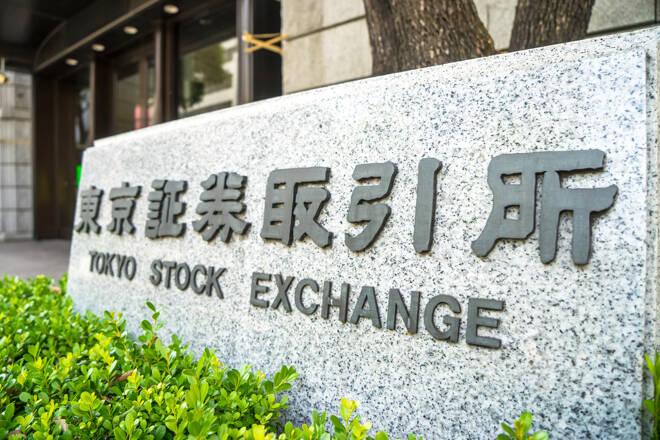Advertisement
Advertisement
Japan, South Korean Shares Pressured by Chinese Technology Crackdown, Renewed COVID-19 Concerns
By:
The Nikkei and KOSPI were rattled all week amid a Chinese crackdown on its technology sector and rising cases of the Delta coronavirus variant.
The major Asia-Pacific stock indexes finished lower across the board on Friday, ending a mostly bearish week on a down note. The markets were rattled all week as a Chinese crackdown on its technology sector and rising cases of the Delta coronavirus variant raged against still-dovish monetary policy and mixed earnings from a range of companies.
Friday’s Cash Market Performance
In Japan, the Nikkei 225 Index settled at 27283.59, down 498.83 or -1.80%. In Hong Kong, the Hang Seng Index finished at 25961.03, down 354.29 or -1.35% and South Korea’s KOSPI Index closed at 3202.32, down 40.33 or -1.24%.
China’s benchmark Shanghai Index settled at 3397.36, down 14.37 or -0.42% and in Australia, the S&P/ASX 200 Index finished at 7392.60, down 24.80 or -0.33%.
Nikkei Ends at Over 6-Month Low on Virus Worries, Earnings Lag
Japan’s Nikkei stock average closed at its lowest since the start of the year on Friday as spiking COVID-19 cases, some earnings disappoints and a decline in U.S. stock futures dented investor sentiment.
The Nikkei’s 1.8% decline on Friday was its biggest decline since June 21 and the lowest close since January 6.
For the month, the Nikkei slumped 5.24%, its worst performance since the coronavirus-induced market meltdown in March last year, after recording an 11th straight decline on the final trading day of the month.
In COVID-related news, Japan’s government on Friday proposed extending the state of emergency through August 31 for Tokyo and some other prefectures, as COVID-19 cases spike to record highs.
“The earnings weren’t that bad, but in terms of the outlook, there doesn’t seem to be a lot of confidence,” which is weighing on stocks, said Masahiro Ichikawa, chief market strategist at Sumitomo Mitsui DS Asset Management.
“The market is wary that the Nikkei could break below 27,000.”
South Korea Stocks Post Worst Month Since March 2020 on Weak China Shares, Virus Woes
South Korean shares tumbled more than 1% on Friday, and posted its worst monthly decline in more than a year, weighed by continued worries about the Chinese government’s regulatory crackdown and the COVID-19 pandemic.
The KOSPI ended down 40.33 points, or 1.24%, at 3,302.32, its sharpest daily fall in more than two months. The index ended the month down 2.86%, its sharpest monthly decline since March last year, and snapped an eight month winning streak.
In economic news, Friday’s data showed South Korea’s factory output in June rebounded from May on a boost in semiconductor and car production.
In COVID-related news, South Korea reported 1,710 new cases for Thursday, still near the record infections marked this week, even after the country imposed the toughest distancing measures in the metropolitan Seoul area and some neighboring cities.
For a look at all of today’s economic events, check out our economic calendar.
About the Author
James Hyerczykauthor
James Hyerczyk is a U.S. based seasoned technical analyst and educator with over 40 years of experience in market analysis and trading, specializing in chart patterns and price movement. He is the author of two books on technical analysis and has a background in both futures and stock markets.
Advertisement
